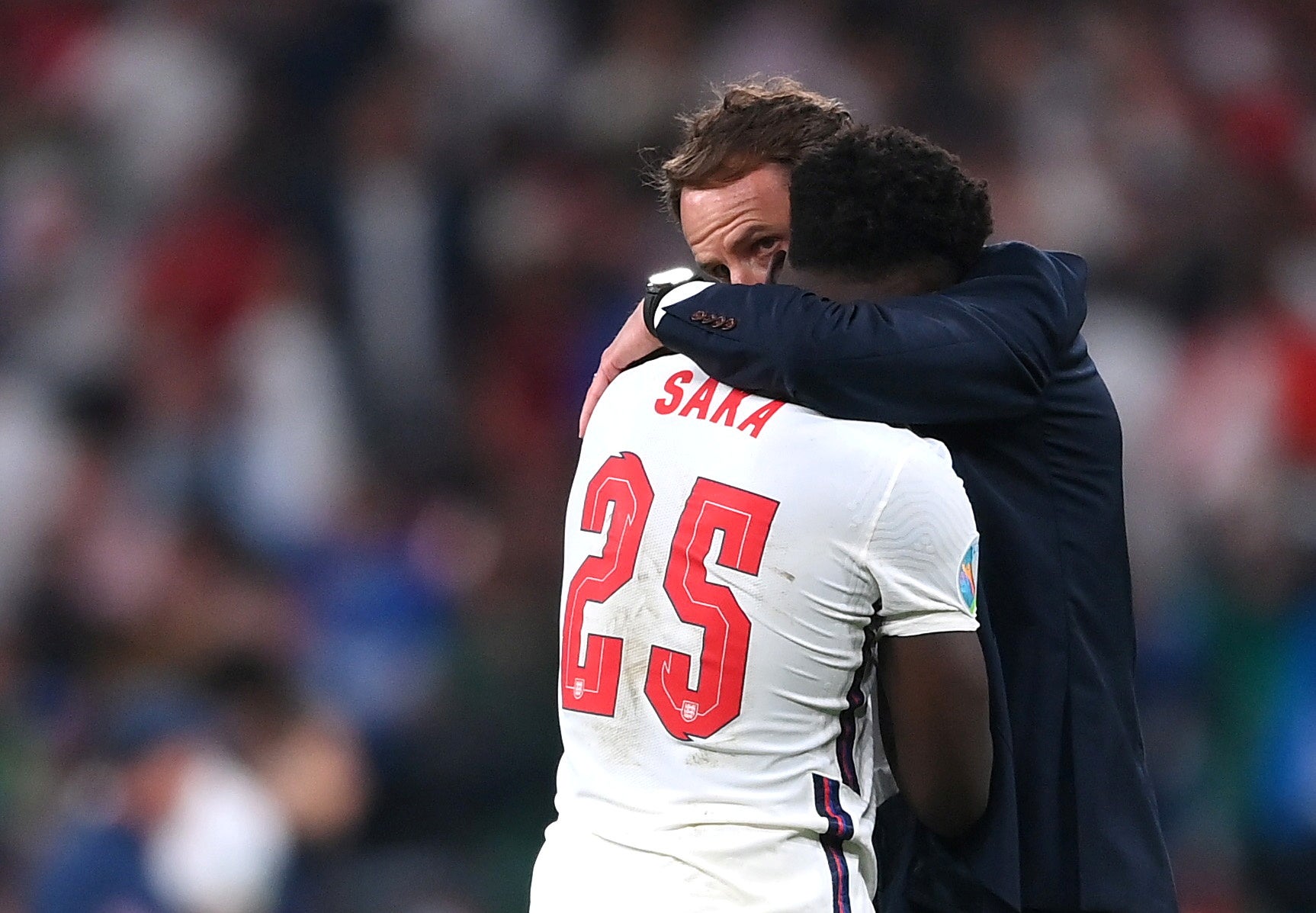Twitter reveals scale of racism after Euro 2020 final and says real names would not stop abuse

Your support helps us to tell the story
From reproductive rights to climate change to Big Tech, The Independent is on the ground when the story is developing. Whether it's investigating the financials of Elon Musk's pro-Trump PAC or producing our latest documentary, 'The A Word', which shines a light on the American women fighting for reproductive rights, we know how important it is to parse out the facts from the messaging.
At such a critical moment in US history, we need reporters on the ground. Your donation allows us to keep sending journalists to speak to both sides of the story.
The Independent is trusted by Americans across the entire political spectrum. And unlike many other quality news outlets, we choose not to lock Americans out of our reporting and analysis with paywalls. We believe quality journalism should be available to everyone, paid for by those who can afford it.
Your support makes all the difference.Twitter has revealed the first findings and changes to come after the Euro 2020 final saw footballers subjected to racist abuse.
It has detailed the vast scale of the problem, as well as the fact that it did not think a “real name policy” – widely touted as a possible solution to abuse – would work to combat it.
Twitter also said that it would be rolling out a new feature in the form of an “autoblock” tool that would hide messages that would temporarily automatically hide accounts that use harmful language.
It also suggested that claims that much of the abuse was coming from outside of the country was incorrect. “While many have quite rightly highlighted the global nature of the conversation, it is also important to acknowledge the UK was - by far - the largest country of origin for the abusive Tweets we removed,” Twitter said.
In all, Twitter said removed more than 1,900 racist, abusive tweets in the wake of the Euro 2020 final.
It identified and removed 1,622 tweets during the final and in the 24 hours after the game - rising to 1,961 three days after the game, Twitter said.
Following defeat to Italy in the final, England players Marcus Rashford, Jadon Sancho and Bukayo Saka were racially abused online after missing penalties in the shootout at Wembley last month.
In the wake of that abuse, many suggested that a real name policy would help ensure that people were held more responsible for what they post online. But Twitter said that 99 per cent of banned accounts were identifiable already, and that therefore “ID verification would have been unlikely to prevent the abuse from happening”.
The social media giant said racism was a “deep societal issue” still also taking place offline, but acknowledged it needed to do better to make its platform safe and encouraged further collective action alongside government and football authorities.
In an update on its response to the incident, Twitter said it had put in place plans to “quickly identify and remove racist, abusive tweets targeting the England team and wider Euros conversation” before the tournament.
The site and others have been accused of being slow to respond to online abuse and removing it, but Twitter said as a result of these plans, only 2% of the tweets removed following the final generated more than 1,000 impressions, or views, before being taken down.
It said it was continuing to work on ways to reduce the visibility of this type of content to ensure fewer people see it before it removed.
The company also said the UK was “by far” the largest country of origin for the abusive tweets on the night of the final and the days that followed.
In response to the incident, some campaigners have called for ID verification to be introduced to social media to cut the spread of online abuse and help quickly identify those involved, but Twitter said its analysis suggests this would have been unlikely to prevent the abuse during the Euros from happening.
According to Twitter‘s data, 99% of the account owners it suspended during the tournament for abuse rule breaches were identifiable and not posting anonymously.
“Our aim is always that Twitter be used as a vehicle for every person to communicate safely - be it in highlighting injustice or giving a voice to those communities who have been historically under-represented,” Twitter UK said.
“There is no place for racist abuse on Twitter and we are determined to do all we can to stop these abhorrent views and behaviours from being seen on our platform.
“We can do better. We fully acknowledge our responsibility to ensure the service is safe - not just for the football community, but for all users.
“However, we also have to be honest that the progress we will be able to make alone would be magnified by greater interventions across the board.
“As long as racism exists offline, we will continue to see people try and bring these views online - it is a scourge technology cannot solve alone.
“Everyone has a role to play - including the government and the football authorities - and ??we will continue to call for a collective approach to combat this deep societal issue.”
Last week, police investigating the online racial abuse of England players following the Euro 2020 final have made 11 arrests so far.
The UK Football Policing Unit say its investigation team has received more than 600 reports from individuals, charities, clubs and other organisations across the country, and 207 were criminal in nature, with 34 accounts identified as being in the UK.
Additional reporting by Press Association
Join our commenting forum
Join thought-provoking conversations, follow other Independent readers and see their replies
Comments